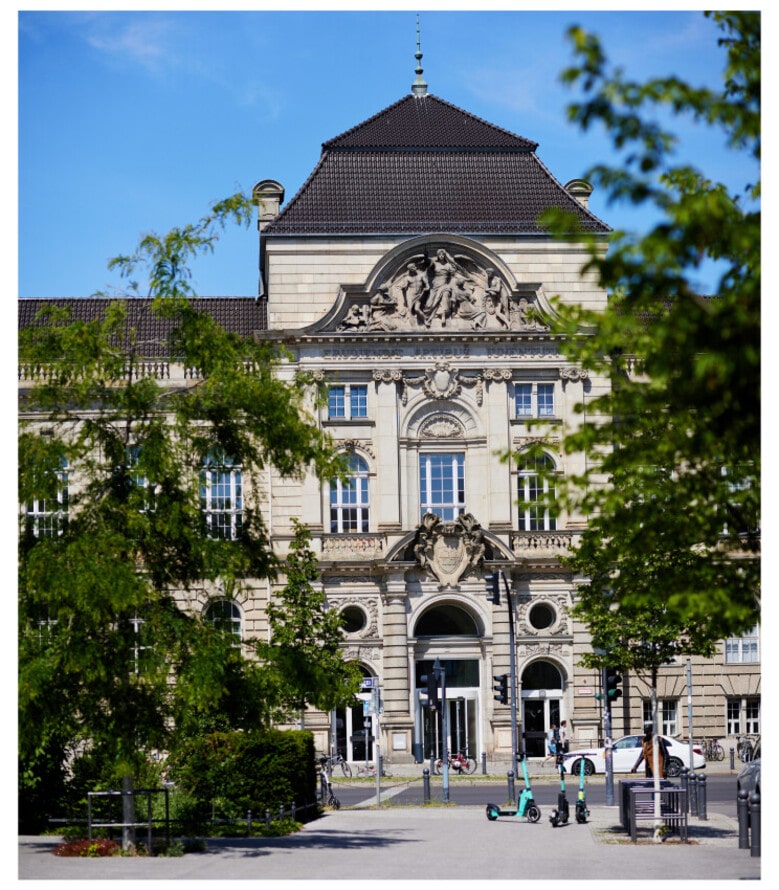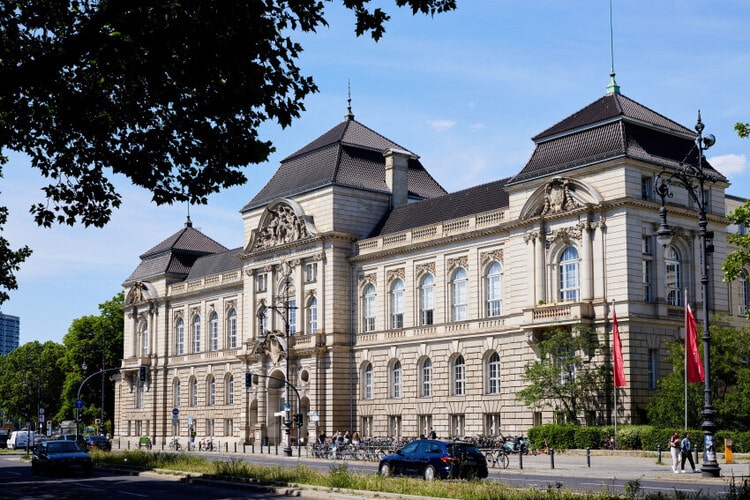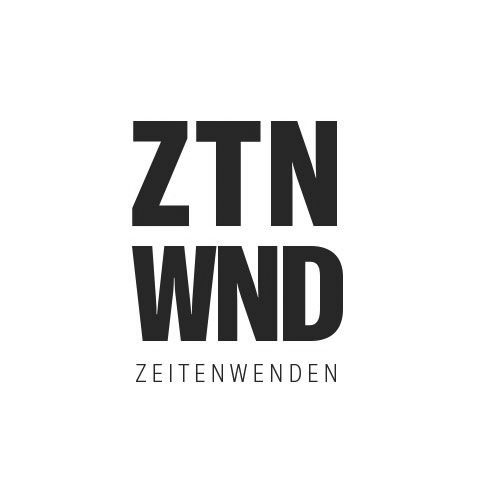At yesterday’s meeting (15 January 2025) of the Academic Senate of Berlin University of the Arts, the following statement on the cuts to the university budget by the Berlin Senate was unanimously adopted:
Image above: Universität der Künste, Hardenbergstraße – Foto: Nikolaus Brade.
The Berlin University of the Arts recognises the need for economical budgeting and has been practising this for many years through the responsible use of resources. The fact that this is not recognised, but instead the university contract concluded after long negotiations in agreement with the Senate of Berlin and the House of Representatives is virtually terminated, is perceived by us as a breach of trust. At the same time, we consider the unilateral cancellation of the university agreement to be unlawful and believe this to be supported by a legal opinion.
The existence of the UdK Berlin is in existential danger, as the university has been deprived of the financial basis to continue to fulfil its sovereign tasks in teaching and research to a high standard. The 8% cut in the consumptive state subsidy means a reduction to less than 91 million euros, which already no longer covers the running costs in the areas of personnel, building maintenance, management (energy, electricity…) and rental costs. Accordingly, the UdK Berlin will not be able to make this cut, as renovations and maintenance would have to be de facto suspended. We are forced to abandon the sustainable use of the building fabric at a time when energy-saving and climate protection measures are urgently needed and price increases in the construction sector will cause far higher costs in the future than at present – an expensive refurbishment backlog would be the direct consequence. Furthermore, if further savings are made in the 2026/27 double budget, the UdK Berlin will no longer be able to cover the costs of rent, electricity and heating by 2026. These amounts cannot be covered by sufficient reserves.
This large amount of savings also forces us to accept a significant drop in the quality of teaching. Of all people, it is those whose education is our social mission who have to pay for this: the students. In order to save money, professorial teaching is being replaced by teaching assignments, non-professorial posts cannot be refilled and faculty budgets are being unacceptably reduced. We are protesting against this in the strongest possible terms, especially as it is immediately apparent how the cost-cutting measures would have to be shouldered directly by lecturers, guest lecturers, visiting professors and many employees who work on a temporary basis and are therefore already in precarious employment.

In addition to many other consequential problems, the cuts entail the risk of a loss of solidarity within the university and the city of Berlin, as well as the risk of further precarisation of many university members. They also lead to a massive competitive disadvantage for the university in a highly competitive environment, particularly in comparison to other countries, but also internationally.
We see no political vision on the part of the state of Berlin as to how the university’s tasks, which would not only require no cuts, but on the contrary an increase in the budget in the area of education, could be mastered with university teaching that is in deficit under the pressure to make savings. The cuts that have been decided upon come at an inopportune time, against the background of global crises and challenges that make an excellent quality of education absolutely essential. They are blocking the necessary expansion of university fields of action in the areas of digitalisation, diversity, justice and the promotion of social cohesion.
The cuts that have been decided upon are evidence of a lack of political responsibility for education on the part of the Berlin Senate for the generation of students affected. The negative effects also have an immediate impact on the city’s development potential in the areas of art, culture and innovation. The necessary savings for the year 2025 alone cannot be achieved through economical management. Moreover, there are hardly any financially strong funding institutions in the arts sector that could compensate for these savings through third-party funding. Private-sector investments, as proposed by the mayor, are neither sustainable nor sufficient to reliably compensate for the deficits in the state subsidy. Financial dependence on third-party funding has a direct impact on the structure and content, indeed on the entire education system.
Investing in education means investing in the future of the younger generation, in the city and in the future of our democracy.
Investing in education means investing in cohesion, in innovation and future viability, in the culture of a society that is able to act in a differentiated way in an increasingly complex world.






